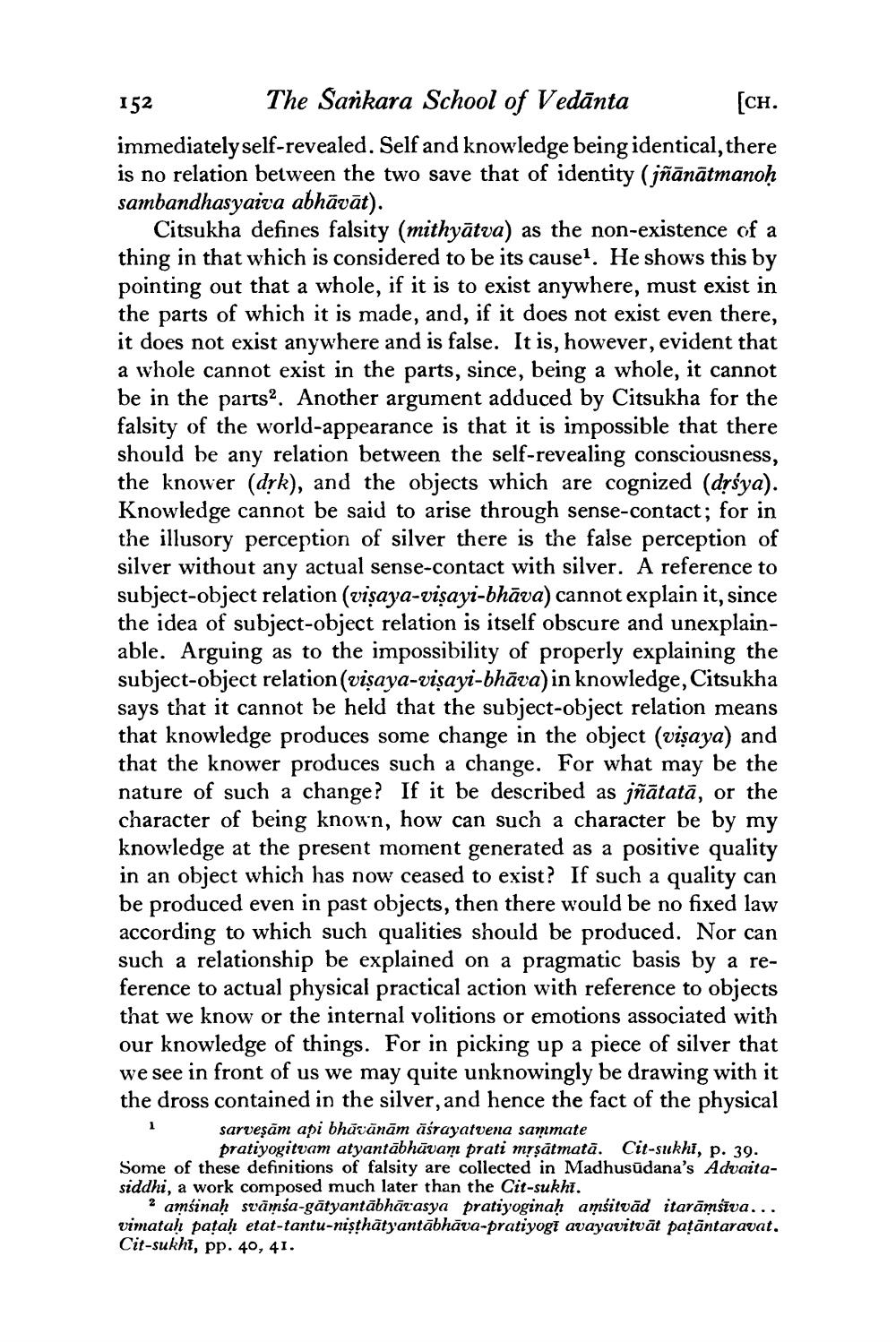________________
[CH.
152
The Sankara School of Vedānta immediately self-revealed. Self and knowledge being identical, there is no relation between the two save that of identity (jñānātmanoḥ sambandhasyaira abhāvāt).
Citsukha defines falsity (mithyātva) as the non-existence of a thing in that which is considered to be its cause. He shows this by pointing out that a whole, if it is to exist anywhere, must exist in the parts of which it is made, and, if it does not exist even there, it does not exist anywhere and is false. It is, however, evident that a whole cannot exist in the parts, since, being a whole, it cannot be in the parts?. Another argument adduced by Citsukha for the falsity of the world-appearance is that it is impossible that there should be any relation between the self-revealing consciousness, the knower (dỊk), and the objects which are cognized (drśya). Knowledge cannot be said to arise through sense-contact; for in the illusory perception of silver there is the false perception of silver without any actual sense-contact with silver. A reference to subject-object relation (vişaya-visayi-bhāva) cannot explain it, since the idea of subject-object relation is itself obscure and unexplainable. Arguing as to the impossibility of properly explaining the subject-object relation (visaya-visayi-bhāva) in knowledge, Citsukha says that it cannot be held that the subject-object relation means that knowledge produces some change in the object (visaya) and that the knower produces such a change. For what may be the nature of such a change? If it be described as jñātatā, or the character of being known, how can such a character be by my knowledge at the present moment generated as a positive quality in an object which has now ceased to exist? If such a quality can be produced even in past objects, then there would be no fixed law according to which such qualities should be produced. Nor can such a relationship be explained on a pragmatic basis by a reference to actual physical practical action with reference to objects that we know or the internal volitions or emotions associated with our knowledge of things. For in picking up a piece of silver that we see in front of us we may quite unknowingly be drawing with it the dross contained in the silver, and hence the fact of the physical 1 sarveşām api bhāvānām āśrayatvena sammate
pratiyogitvam atyantābhāvam prati mysătmatā. Cit-sukhi, p. 39. Some of these definitions of falsity are collected in Madhusudana's Advaitasiddhi, a work composed much later than the Cit-sukhi.
2 amsinaḥ svāmsa-gātyantābhārasya pratiyoginaḥ amsituād itarāmsīva... vimatah patah etat-tantu-nişthătyantābhāva-pratiyogi avayavitvāt pațāntaravat. Cit-sukhi, pp. 40, 41.




